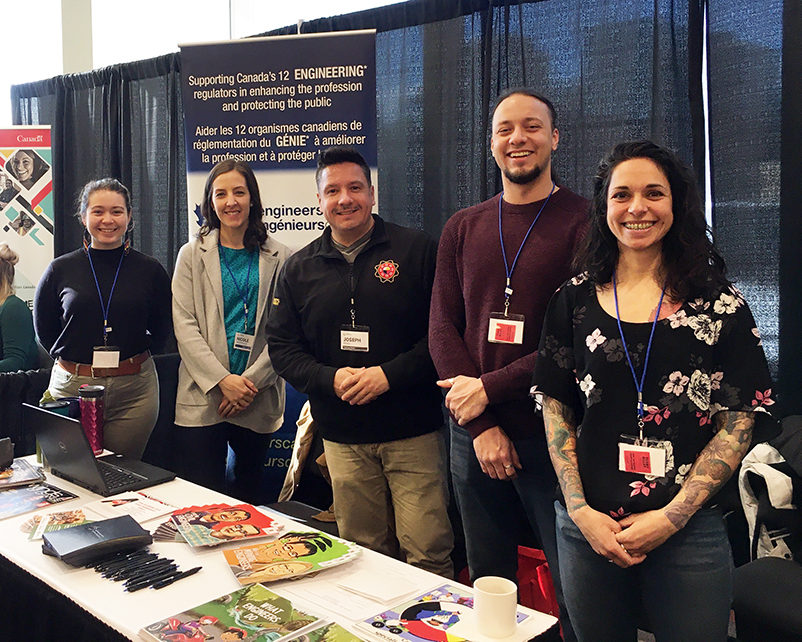After graduating from Civil Engineering at Queen’s in 2015, Haven Moses worked for two years in a coastal engineer firm before accepting a job offer from Neegan Burnside, a premier Indigenous-owned engineering and environmental services firm. Shortly thereafter, though, he found his talent for structural engineering consistently lent itself to the projects of the firm’s corporate partner, R.J. Burnside & Associates.
“Neegan Burnside focuses on Indigenous-based engineering projects and consulting, mainly wastewater,” he said, “but with consulting it can take all forms, and include environmental assessments, or population projections and how it will affect the infrastructure. Technically I’m a Neegan employee but with my structural engineering background a lot of my work comes through R.J. Burnside.”
“A client will give us a project through a project manager, who puts together a team for structural design, mechanical design, however big the project is, and drafting. It's all team-based and workflow-based. Sometimes there are projects that go on for a year, sometimes they're done in a week. I do private, public, agricultural, industrial, residential, structural stuff.”

Haven Moses, second from right, at the Engineers Canada booth for the Indspire Soaring youth career conference, March 2020.
Haven’s work life was upended last year when, at the worldwide promise of a two-week lockdown to flatten the COVID-19 curve, he found himself laid off for four months. But when he was called back to work late in the summer, he found a workload unrelenting that has yet to subside. “I'm probably busier than I've ever been for the last few months, which has been good,” he said. “It's nice to have the pressure on. It just keeps the motivation there. It’s been a lot of just kind of rolling with the punches for the last year, but I’m pretty good at adapting.”
Looking back on his time at Queen’s, he reflects on the Aboriginal Access to Engineering (AAE) initiative as a constant source of support through those years. “It had always been part of my engineering journey, since second year, the amount of time that I spent in that room [the dedicated study room in the ILC reserved for Indigenous students] studying, and the resources provided are invaluable,” he said. In addition to specialized outreach endeavors aimed at Indigenous youth in the region, AAE provides culturally relevant student support services to Indigenous students enrolled in the Faculty of Engineering and Applied Science. “I guess you can't really put a price on it. There's so much that was provided in terms of study resources, community-building, job opportunities, conferences. It was definitely a good way to stay connected to culture.”
With that in mind, Haven has been mindful to pay it forward in the years since he graduated from Queen’s. Just days before the first COVID-related lockdown in March 2020, he participated in a panel discussion at a career conference for Indigenous high school students. Engineers Canada coordinated the panel, which included him and two other Indigenous engineering graduates. “We were asked to talk about our careers and experiences, and answered questions from Indigenous youth, high school age, who might potentially want to get into engineering.”
“I try to stay connected to Queen’s as much as possible,” he said, adding that he’s a member of the Aboriginal Access to Engineering circle of advisors. “It's important for me to give back, especially because I’d been given so much by AAE. It’s something that’s important to me to do whatever I can to support the initiative now.”